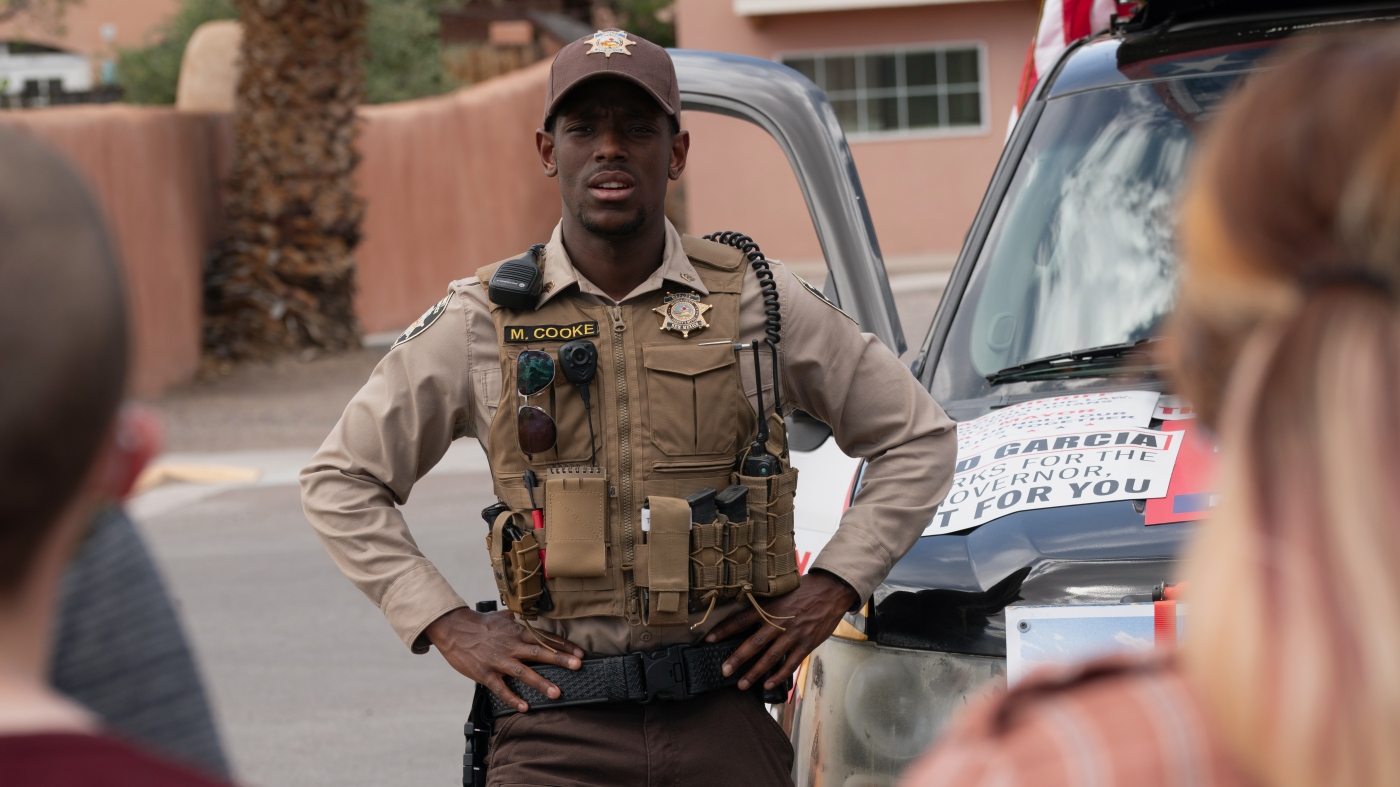Exploring Eddington: A Timely Reflection on Race and Society
Ari Aster’s film Eddington takes viewers into a small town during a crucial moment in 2020. If you’re familiar with Aster’s earlier works, like Hereditary and Midsommar, you might have expected something intense, and this film is no different.
Set against the backdrop of the COVID-19 pandemic, the movie features Joaquin Phoenix as the sheriff and Pedro Pascal as the mayor. Their characters clash on both political and personal levels. With a timestamp reading “May 2020,” the film resonates with the real-life turmoil of that time. It captures the chaos as unmasked shoppers face backlash and conspiracy theories spread like wildfire.
Echoes of Real Events
In many ways, Eddington mirrors the events of 2020. The protests following George Floyd’s murder deeply affected communities worldwide. The film does a commendable job showing the confusion and anger felt by its characters. As they take to the streets, their commitment to anti-racism is palpable, but the effectiveness of their actions is questionable.
Critics note that Aster seems to touch on important themes but sometimes stops short of genuine exploration. The character Michael, portrayed by Micheal Ward, is the film’s only Black character. His role as a police officer feels almost like a punchline, highlighting a struggle with identity that Aster doesn’t fully develop. This representation raises questions: How does someone like Michael navigate the tension between being a Black man and a police officer during such a fraught time? These are complex questions left largely unanswered in the film.
The Dangers of Surface-Level Reflection
The film risks feeling superficial. Although it captures societal discontent and misinformation, it often seems to replicate events without deeper analysis. Characters go through the motions of activism, shouting slogans without considering tangible solutions. This portrayal skims the surface of real issues, leaving audiences craving more depth.
In a recent survey, 62% of viewers expressed a desire for more nuanced portrayals of race relations in media. They want to see characters whose identities and experiences aren’t just side notes. Instead of purely reflecting societal chaos, many seek films that dissect it. This illustrates a broader cultural shift where audiences yearn for authenticity and complexity in storytelling.
A Missed Opportunity?
While Eddington effectively evokes a sense of déjà vu, it ultimately falls short. Aster’s approach might seem like a commentary on racial issues, but it rarely dives below the surface. Characters can sometimes feel like vessels for discussion rather than fully realized individuals. Michael’s tragic fate, while impactful, comes across as predictable rather than poignant.
Jordan Peele’s Get Out serves as an interesting contrast here. Peele merges horror and social critique with a storytelling depth that invites viewers to reflect. His success might stem from genuinely addressing historical context while crafting engaging narratives. Aster, on the other hand, recreates the chaos of 2020 without providing the emotional or narrative weight to truly resonate.
Conclusion: The Quest for Authenticity
As viewers, we crave complexity in characters and narratives. While Eddington flashes moments of promise, it often returns to clichés and surface-level discussions. In a time when important conversations about race and justice are front and center, films must do justice to their subject matter. We hope future storytellers embrace this challenge, moving beyond imitation to create a meaningful dialogue.
For a deeper dive into relevant social issues and cinematic representation, check out NPR’s coverage and other media that explore these themes more thoroughly.


